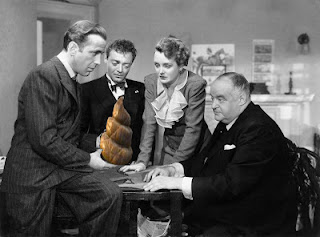The letter from Synagro boasts that its operations are "environmentally friendly," which begs the question of why Synagro refused to submit the Environmental Impact Statement that the township planners and Board of Supervisors requested - the main reason their application was denied after two years and 10 months. There is a major contradiction there.
A Morning Call article in March of 2017, almost three years ago, was accompanied by a picture of activists and husband and wife Tom Carlo and Elissa Robles-Carlo. The article may be seen by clicking their picture below. Tom and Elissa were instrumental in the fight against Synagro from beginning to end. They circulated door to door multiple times, getting a petition signed and asking residents to attend meetings. Wind Gap was dragging its heals in taking a position on the proposal after other towns had voted to oppose it. Tom visited a Wind Gap council meeting, and pressured council to take a stance. After some uncomfortable shifting in seats, Wind Gap council voted to oppose the proposal. At a Synagro dog and pony show that year, a presumptuous Synagro representative challenged Elissa's commitment to the environment by suggesting that she disposes of her metal waste from jewelry making irresponsibly. Elissa corrected him by pointing out that she collects and recycles the waste, and asked how he knew that she makes jewelry. The representative admitted he had researched her, because she "threatened his ability to make money." Elissa replied that his business threatens her town. This couple doesn't take crap from anyone.
Other activists like Tom and Elissa came out meeting after meeting to monitor the progress of Synagro's land development application. Their constant presence reminded anyone who may have not noticed that the community objected unanimously this proposal. Representatives from the Sierra Club, Clean Air Council and Delaware Riverkeeper also kept abreast of developments and monitored the DEP permit applications continuously. Two lawsuits were filed by citizens, rightfully objecting to odors emanating from the landfill. One goal of these lawsuits was evidently to challenge an additional solid waste use on Waste Management property that would negatively impact neighbors.


